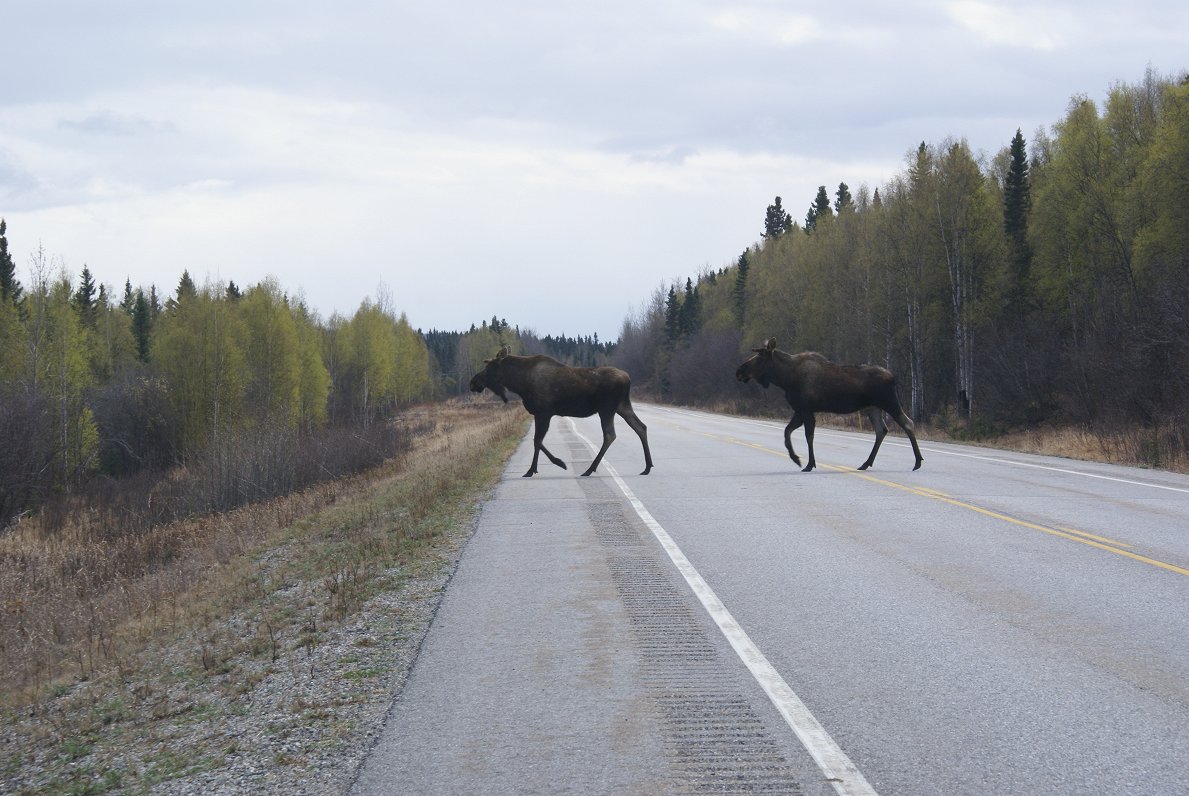“Early on Saturday morning, my wife and I were driving from Rēzekne to Rīga, and suddenly an animal shot into the road from the right side and ran into the side of the car,” said Edgars, an experience driver. Recently, a deer crashed into the car he was driving on the highway, causing a road accident. “The car didn't run off the road, I just hit the brakes. The car skidded to a halt on the side of the road, but the animal ran into the roadside grass. The blow was quite a powerful one, so I think the deer died on its way.”
The inspector of the Patrol Police Department of the Latgale Region Administration Edgars Greivulis admits that the number of car accidents involving animals is growing every year. This year, in the area of the former Ludza region alone, 97 car accidents have occurred, 22 out of which were collisions with wild animals. In a few of these cases, the animals happened to be elk. Most often, however, it is the deer that gets in the headlights.
Edgars Greivulis revealed that the accidents that come to the notice of the police are most often those in which insured cars are involved. At times, however, drivers without a KASKO insurance inform the police of the accident:
“Most often, it is the older people who think it right to report the accident to the police. We come and register the accident, and call the Forest Service to remove the dead animal from the road,” said Greivulis.
But the registered dead animals are only the tip of the iceberg. Neither the police nor any other responsible body ever finds out about accidents where smaller animals have come to harm.
“People either remove the smaller knocked down animals from the way or take them home without reporting them. It's impossible to monitor, since these accidents occur with no eye witnesses on both highways and country roads,” said Greivulis.
Lorija Pozņakova, the hunting engineer of the East Latgale Forestry, agrees that the population of animals, especially elk and deer, have increased due to favorable weather conditions. Accordingly, the number of animals killed in car accidents has grown.
“Regarding the animal species struck down in Eastern Latgale, the situation is quite similar to previous years. During the previous hunting season, we registered the deaths of 21 elk, 68 deer, 3 wild boars. And during this hunting season, which began in April, we have registered 5 elk, 24 deer, 1 wild boar. That's a large number, but we also have to consider all of the cases that haven't been reported,” saud Pozņakova.
Insurers have their own statistics showing the impact of vehicle collisions with wild animals. The car accidents statistics shows that in these accidents it is not only the driver that often gets injured but also the passengers, emphasised a representative of the “BALTA” insurance company Kristaps Liecinieks.
At the beginning of the year, the Road Safety Council allocated funding to two pilot projects aiming to reduce the number of accidents involving wild animals.
“Two pilot projects have been launched this year to test technologies that help prevent collisions with animals. Two road sections have been selected – one on the Ventspils highway from the Ķemeri forest to Ozolpils, and the other on the Jelgava highway – where new technologies will be installed,” said the “Latvian State Roads” representative Anna Kononova.
In the autumn of this year, special signal posts which react to car lights and frighten off animals will be installed on the Ventspils highway. On the Jelgava highway, however, a road fence with intermittent breaches will be fixed. Even so, the fate of both projects depends upon the financial generosity of “Latvia State Roads”
Last year, 620 road accidents involving wild animals were registered in Latvia. 80 people were injured and two died.




























